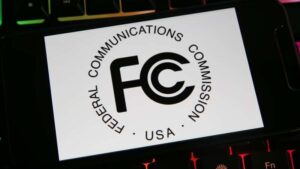Leaders in education and technology said that while artificial intelligence can improve education and provide administrative support, it can also lead to concerns over privacy and bias.
The Wyoming Department of Education has released the Guidance for Wyoming School Districts on Developing Artificial Intelligence Use Policy.
The Federal Communications Commission (FCC) has approved final rules to enable schools and libraries to use E-Rate program resources to loan out Wi-Fi hotspots to students and library patrons who don’t have a reliable internet connection at home.
George Mason University has tapped Charmaine Madison to serve as the school’s new vice president of Information Services and chief information office (CIO).
The Biden-Harris administration announced actions this week from government, academia, and civil society that aim to grow and enable the public interest technology ecosystem through bolstering the workforce.
The Wyoming Department of Education is partnering with the University of Wyoming’s (UW) Malcolm Wallop Civic Engagement Program on a new online learning center that aims to bring civics education to K-12 students in the state.
Beginning this summer, the University of Colorado has rolled out a new employee self-service (ESS) tool that allows employees using Family and Medical Leave Insurance (FAMLI), FMLA, and Parental Leave to apply for and manage their leave more easily.
The Federal Communications Commission (FCC) has proposed a final rule that, if adopted, would allow schools and libraries to use funding from the E-Rate program for off-premises use of WiFi hotspots.
Northern Arizona University’s (NAU) Arizona Institute for Education and the Economy (AIEE) has released a new guide to help teachers and administrators integrate generative artificial intelligence (GenAI) into the classroom environment.
The New Hampshire Department of Education (NHED) has signed a contract with Khan Academy to offer an artificial intelligence platform pilot for educators and students in grades 5-12 statewide.













